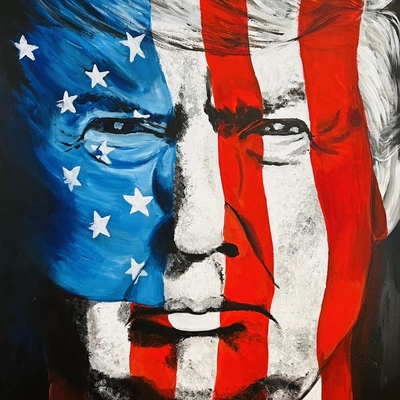Stay informed on the latest Truth Social posts from Donald Trump (@realDonaldTrump) without the doomscrolling. Consider it a public service for your mental health. (Why?)
- The United States has a significant, long-term, and persistent Trade Deficit with Bosnia and Herzegovina.
- The United States seeks a more balanced and fair trading relationship.
- Starting August 1, 2025, the U.S. will charge Bosnia and Herzegovina a Tariff of 30% on all products sent into the United States.
- Goods transshipped to evade higher tariffs will be subject to higher tariffs.
- The 30% tariff is less than what is needed to eliminate the Trade Deficit disparity.
- There will be no Tariff if Bosnia and Herzegovina, or companies within Bosnia and Herzegovina, decide to build or manufacture products within the United States.
- If Bosnia and Herzegovina decides to raise its Tariffs, that amount will be added onto the 30% tariff charged by the U.S.
- The unsustainable Trade Deficits against the United States are a major threat to the U.S. Economy and National Security.
The described tariff imposition targets a specific, relatively small economy (Bosnia and Herzegovina). The direct impact on the S&P 500 from trade with this single country is likely minimal. However, the rhetoric of linking trade deficits to national security and the unilateral imposition of tariffs could be interpreted as a precedent for broader protectionist policies against other trading partners. This broader interpretation could introduce uncertainty and potentially impact S&P 500 sentiment, especially for companies with international supply chains or significant export exposure. The score reflects this potential for broader sentiment shift rather than direct economic impact from the specific tariff.
The post describes an economic measure (tariffs) to address a trade deficit, framing it as a national security issue. While trade disputes can strain diplomatic relations, the content does not contain any direct threats of military action, ultimatums leading to armed conflict, or references to escalating international conflict beyond economic policy. The risk of international conflict escalation is low, as it pertains to trade policy rather than direct military or severe diplomatic confrontation.
- Commodities: Direct impact on global commodity prices, especially WTI, is very low as Bosnia and Herzegovina is not a major commodity producer or consumer in a globally significant way. If the action is perceived as a precursor to widespread global trade wars, it could lead to demand concerns for industrial metals (like copper) and potentially a flight to safe-haven assets like Gold (XAU), which might rise. Short-Term Watchlist: XAU/USD for any broader risk aversion. Medium-Term Focus: Broader trade policy announcements from the U.S. that could affect global demand outlooks.
- Currencies (Forex): The direct impact on major currency pairs like EURUSD or USDJPY is likely limited. The US Dollar Index (DXY) might see minor safe-haven flows if the move is interpreted as an initial step in broader protectionism. The Bosnian Convertible Marka (BAM) would likely experience immediate pressure against the USD, potentially depreciating significantly. Short-Term Watchlist: DXY for risk sentiment, USD/BAM for direct impact. Medium-Term Focus: Overall U.S. trade policy direction and its implications for global trade flows and currency valuations.
- Global Equities: Direct impact on major global equity indices (S&P 500, Nasdaq, STOXX 600, Nikkei 225, Hang Seng) from this specific tariff is low. However, if the market perceives this as a signal of increasing global protectionism, it could lead to broader risk aversion and negative sentiment, particularly impacting sectors reliant on international trade or global supply chains. European equities might see some minor contagion due to geographical proximity to BiH. Short-Term Watchlist: Futures open for any immediate market reaction; sectors sensitive to trade. Medium-Term Focus: Earnings revisions for multinational corporations, and ongoing macro data.
- Fixed Income (Bonds): A limited direct impact on US 10Y and 2Y yields. If the action is seen as a move towards greater protectionism, it could lead to either a flight to safety (lower yields) or concerns about potential inflation from tariffs (higher yields). The former is more likely initially if uncertainty increases. Credit spreads are unlikely to widen significantly based on this specific action. Short-Term Watchlist: UST 10Y yield levels for risk-off signals. Medium-Term Focus: Inflation expectations and Fed policy responses to broader trade environment.
- Volatility / Derivatives: The VIX is unlikely to see a significant spike unless this action is immediately followed by other major trade policy shifts that trigger widespread market uncertainty. Options positioning related to specific BiH-exposed assets is minimal. Short-Term Watchlist: VIX levels for any uncharacteristic uptick. Medium-Term Focus: Volatility regime shifts if trade tensions become a persistent global theme.
- Crypto / Digital Assets: Bitcoin (BTC) and other digital assets would likely react based on their correlation with broader risk-on/risk-off sentiment. If global equity markets show a negative reaction due to trade war fears, BTC might follow suit. Conversely, some might view it as a hedge against traditional financial system uncertainties, but this is less likely for a highly specific trade action. Short-Term Watchlist: BTC/USD correlation with tech stocks. Medium-Term Focus: Regulatory news and overall macro liquidity backdrop.
- Cross-Asset Correlations and Systemic Risk: No immediate signs of systemic risk or breakdown in normal correlations are expected from this isolated trade action. The MOVE index is unlikely to be significantly affected. Medium-Term Focus: Monitoring for signs of broader trade policy escalation which could lead to increased systemic risk and liquidity stress in global markets.
- Retail Sentiment / Market Psychology: Unlikely to directly trigger significant retail speculation in specific stocks or altcoins. Retail sentiment might be influenced by broader media narratives around trade policy, potentially leading to general anxiety or shifts in broader market participation rather than targeted pushes for specific assets.

